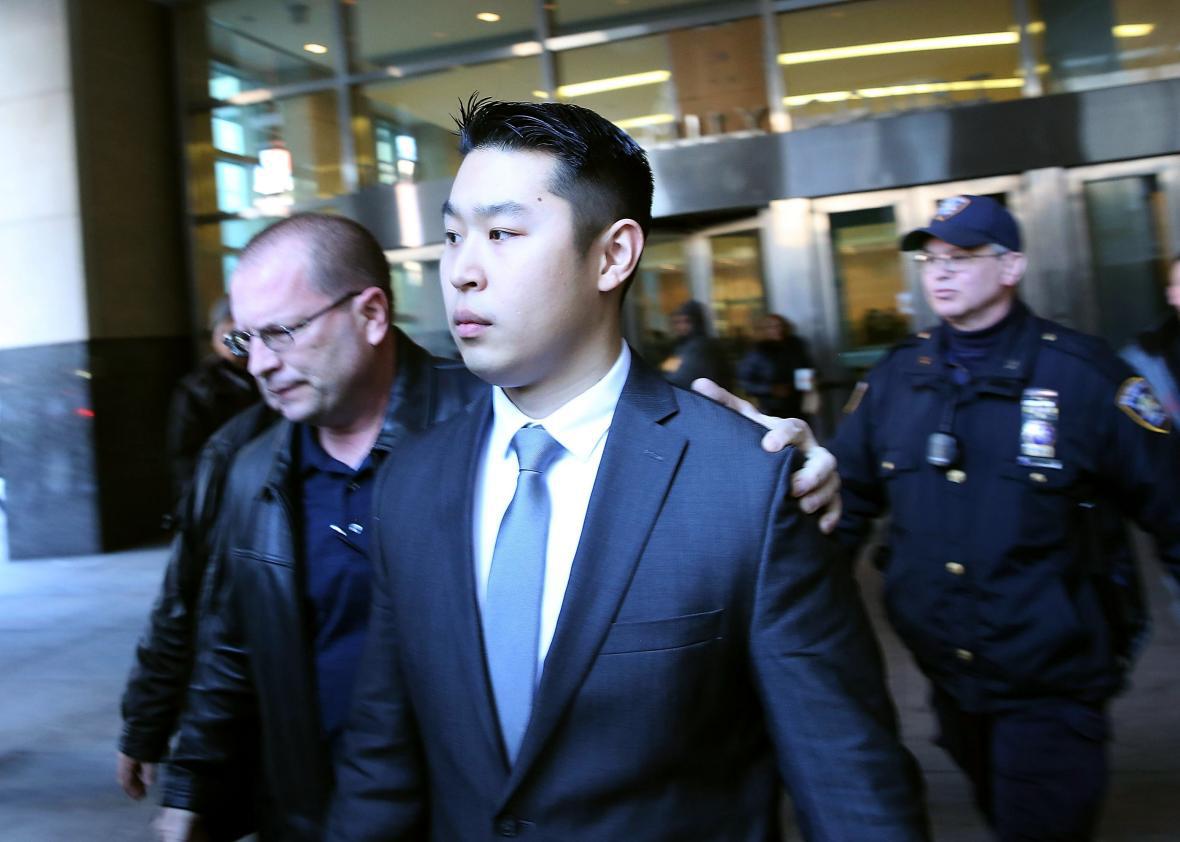The ex-NYPD officer who shot and killed Akai Gurley in November 2014 will face no prison time, the judge overseeing the case announced Tuesday. Peter Liang, who was patrolling the dark stairwell of a housing project in East New York when he unintentionally fired his gun and fatally struck Gurley with a ricocheting bullet, has instead been sentenced to five years probation and 800 hours of community service.
The judge in the case, Danny Chun, also reduced Liang’s conviction—which was handed down by a jury in February—from manslaughter in the second degree to criminally negligent homicide. The central difference between the two charges, according to the New York State Penal Code, is that the former applies to defendants who were aware that their behavior was unjustifiably risky but engaged in it anyway while the latter applies to defendants who simply failed to perceive the risk in what they were doing.
In a statement, Brooklyn District Attorney Ken Thompson—who previously indicated that he would support letting Liang off with no prison time—voiced disagreement with the judge’s decision to reduce Liang’s conviction and vowed to fight it on appeal.
There are many ways in which the Akai Gurley shooting stands out from the many other police shootings of unarmed black men that have captured the nation’s attention since the death of Michael Brown in Ferguson, Missouri, in the summer of 2014. For one thing, law enforcement officials in New York did not try to defend Liang’s actions, with Commissioner Bill Bratton calling Gurley “a total innocent” and his death “an unfortunate accident” in a press conference after the shooting, and Ken Thompson taking the rare step of actually filing criminal charges against Liang. The case was also unusual in its racial politics, which were complicated by the fact that Liang is not white but Asian American; in the aftermath of Liang’s surprising conviction, he received an outpouring of support from fellow Asians across the country who felt that Liang was being sacrificed for political reasons because of his race.
But perhaps the most important way in which Gurley’s death differed from, say, that of Walter Scott, who was shot by a police officer in the back in North Charleston, South Carolina, or that of Tamir Rice, who was killed in Cleveland at close range by an officer who mistook his toy gun for a real one, is that it happened as a result of an accident rather than a deliberate decision. This, more than anything, explains why he was convicted: Because use of force laws tend to give extremely wide latitude to police officers to make deadly tactical choices when they believe their lives are in danger, the fact that Liang fired his gun without meaning to made it that much harder to defend him in the court of law.
Wednesday’s sentencing announcement in Brooklyn was greeted with protests, with some reportedly singing “We Shall Overcome” and others chanting “Fuck the police.” According to the New York Times, Gurley’s aunt said as she left the courtroom, “There is no justice! Akai Gurley’s life didn’t matter!”
